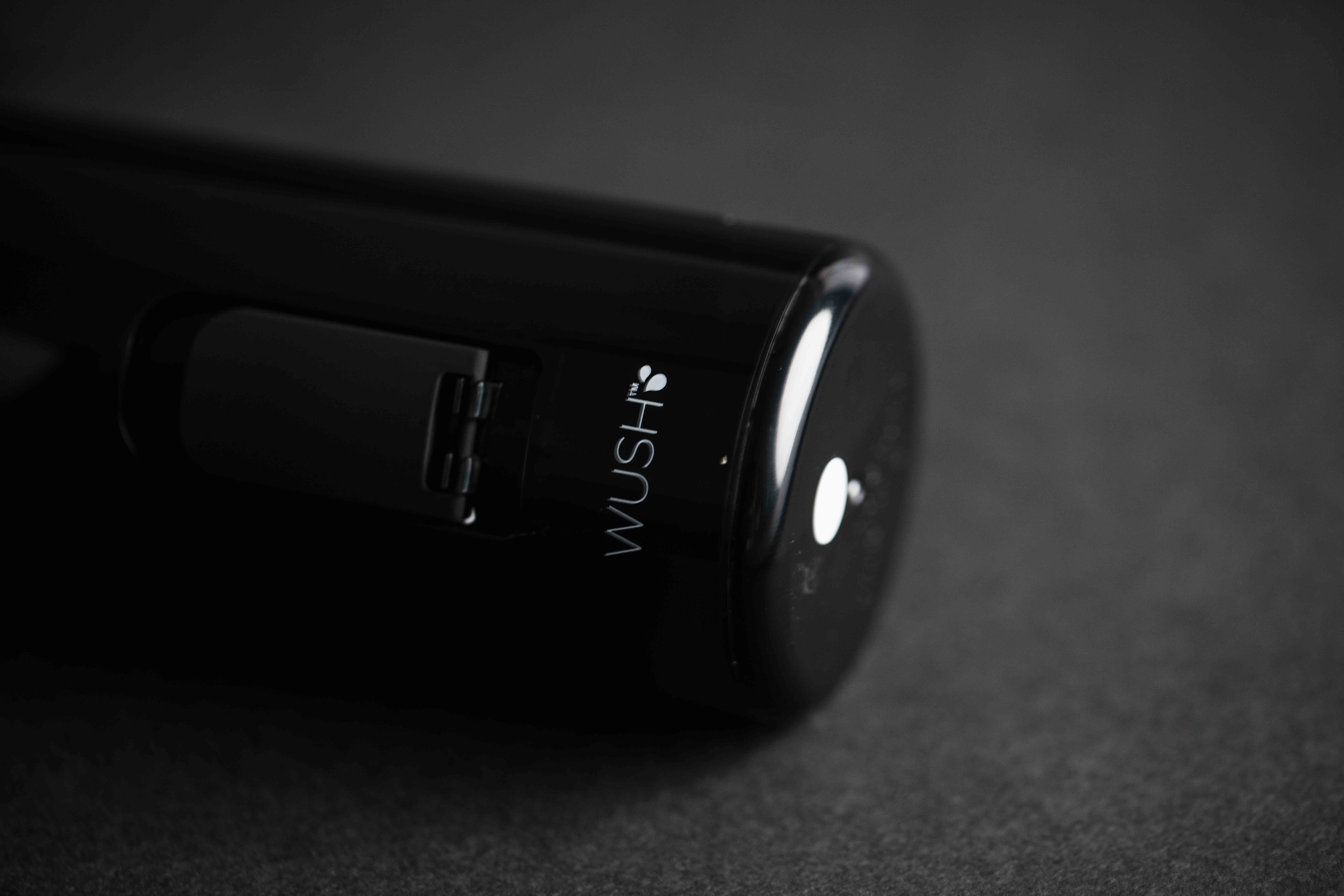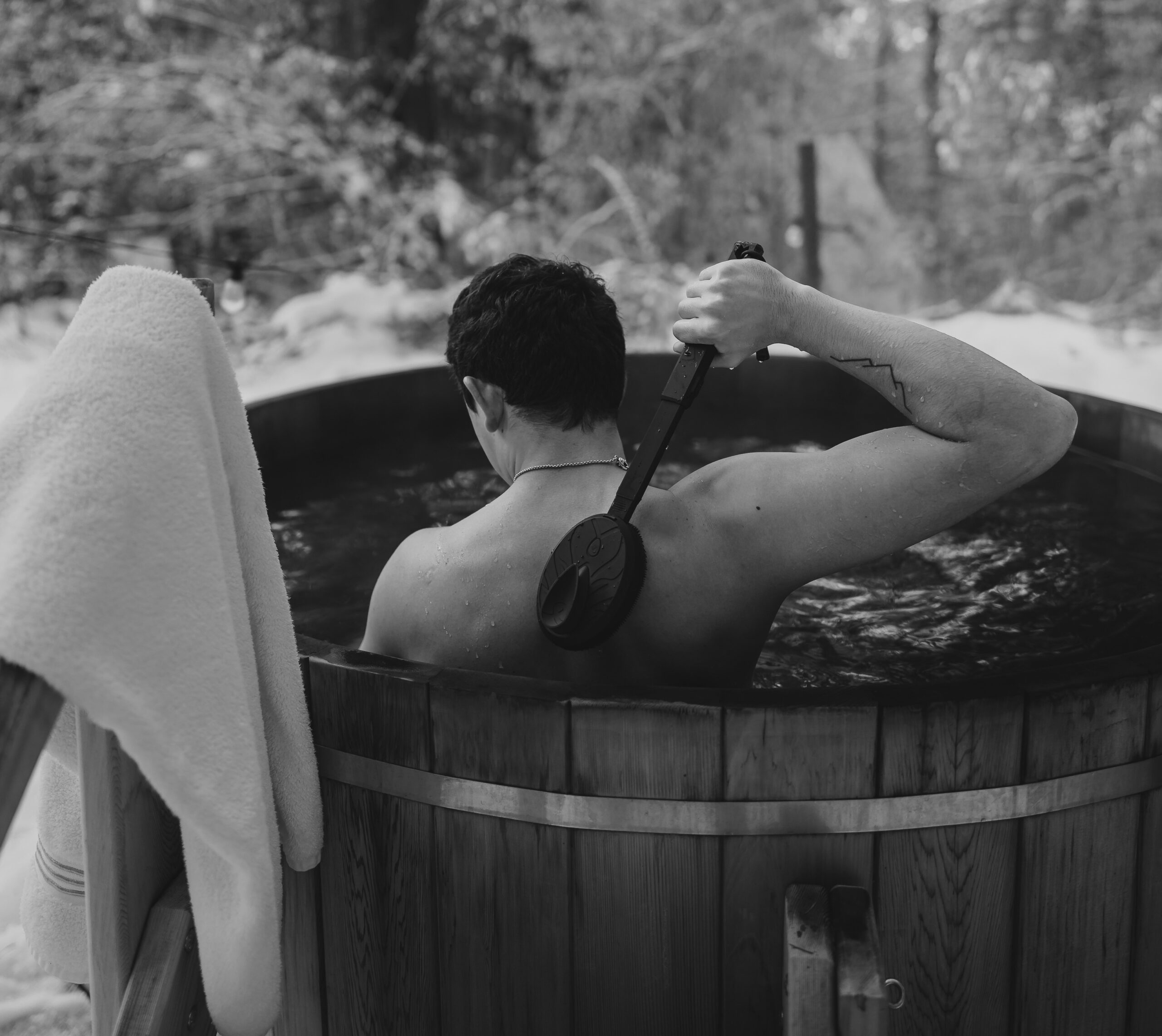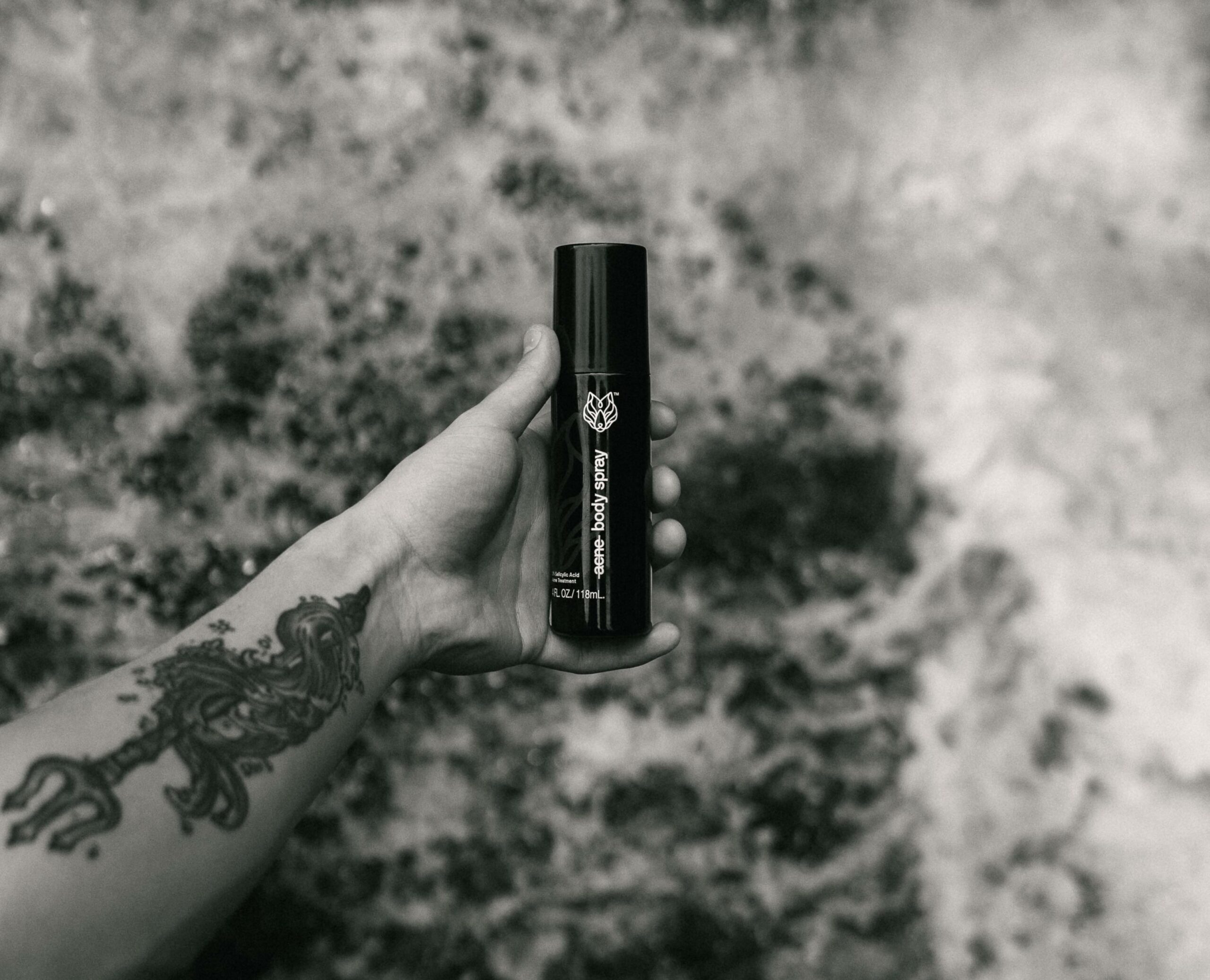
How Black Wolf Built A Multimillion-Dollar Men’s Business Speaking To Guys On Their Terms
Sam Lewkowict’s earwax kept annoyingly building up in his ears.
Scouring the internet for an antidote, he noticed there were many devices promising to rid him of the stubborn substance, but no single brand seemed to own the earwax removal space. He checked search volume for products eradicating earwax, and it was substantial. He obviously wasn’t the only guy in the world with earwax-stuffed ears.
Black Wolf Nation, the men’s brand Lewkowict created with his brother Alex, seized upon the white (yellow?) space and introduced Wush, a $69 rechargeable ear cleaner that rinses out earwax with a stream of water at “the press of a button,” late last year. Walmart, CVS, Rite Aid, Bed Bath & Beyond, Urban Outfitters and HSN quickly snapped up the tool, and it’s a big reason why Black Wolf’s sales are forecast to jump roughly 300% this year. Its sales spiked 300% last year.

Wush epitomizes Black Wolf’s approach to merchandise and brand positioning. It identifies issues bothering men and addresses them with straightforward products explained in a straightforward manner.
The Lewkowict siblings introduced Black Wolf in 2018 with just two products—a face wash and moisturizing gel—for men with acne, and let them know that, by sticking to those two products, they’d calm their acne. Black Wolf originally debuted in September and, by the end of the year, it had already crossed $85,000 in sales.
“We knew men’s skincare was going to be a big deal, but so many brands were trying to change men’s habits to buy and use skincare products like women have with lots of ingredients and steps in their routine,” says Sam Lewkowict. “We felt we should change skincare to adapt to men’s skincare habits, which have a heavy emphasis on problem-solution, and make it quintessentially male so there’s no ambiguity.”
“We took all the guesswork out for guys.”
Handling customer service for the first year and a half as Black Wolf was getting underway, Lewkowict kept being asked whether the brand’s face wash would work for body acne. The questions prompted the brand to release an acne body spray in 2019. As a result, Black Wolf’s monthly revenue multiplied 10X that year. By 2021, it generated in excess of $20 million in sales.
“If you’re a man and have pimples on your back, you’re not necessarily going to go online and search, ‘Give me the top 10 things I can do to solve back acne, and what are the ingredients I need?’ Then, go to the store and look for those ingredients,” says Lewkowict. “They are going through Instagram, and they may stop on an ad that says, ‘Use this twice a day, and it will solve your problem, and not only can it help with that, but it’s super clean and smells great.’ We took all the guesswork out for guys, and that’s why it resonated.”
Black Wolf is doubling down on guesswork-free products. In the next 12 months, it plans to enlarge its assortment from a dozen to 24 products. “We are going to be going after all kinds of different solutions for different guys,” says Lewkowict. “There are many other categories for men within face and body that we can launch solutions for.”

Dependent on direct-to-consumer distribution for most of its history, Black Wolf aims for retail to constitute 50% of its business in the years ahead. It’s pursuing a two-pronged retail strategy. It has devices suited for mass-market chains such as Walmart and CVS—this month, it followed up on Wush with Sonic Scrubber, a $49 vibrating silicone face and body brush—and skincare and body care at prices slightly above standard mass-market prices it’s planting at retailers such as Urban Outfitters. Lewkowict says, “Your typical two-in-one body wash is $9.99, and our body wash is $18, so we have to be very careful about where we put those products.”
With guys in their 20s and 30s its core customers, Black Wolf is zeroing in on places they purchase from. It entered the Amazon universe in 2020. “My dream was always to get men to buy for themselves. A lot of men’s brands have women buying for them, but I knew we would be successful if men saw our ads and said, ‘I want that, and I’m going to buy it,’” says Lewkowict. “It’s a point of pride that our proportion of men is significantly higher.” Some three men shell out for a Black Wolf product for every woman.
As it expands at retail, Black Wolf is leaning into guidance from its investors that have played the retail game before, notably Scott Boilen, CEO of Allstar Products Group and instigator of the Snuggie craze, and David Tal, co-founder of haircare brand Moroccanoil. In 2020, Black Wolf raised $1.5 million in angel funding from Tal, Boilen, Corigin Ventures general partner David Goldberg, PopSugar co-founder and Sugar Capital managing partner Brian Sugar and Sharma Brands CEO Nik Sharma, among an extensive group of backers. Prior to the $1.5 million angel round, the Lewkowicts raised around $100,000 to bring Black Wolf to market.
“The opportunity lies in getting the average guy to level up to something that’s good quality and will improve his confidence.”
To reel in investment, Sam Lewkowict recounts, “We reached out to people who built businesses three to four years ahead of us. We would say, ‘We launched this brand, we would like to get advice on how to get to our first 10 sales.’ They gave tangible feedback on how to get to 10 sales. Once we got to 10 sales, we reached back out to them to say, ‘We got to 10 sales a day, how do we get to 20 sales a day?’ We got all these people excited in what we were doing. When it came time to raise money, they were already invested emotionally.”
Currently, Black Wolf isn’t hunting for investment. Instead, it’s focused on profitability. In the heyday of digital advertising, Lewkowict says Black Wolf might “take 18 different swings with a marketing channel. With a new product, we would spend $30,000 on each one to see what works.”
Today, Black Wolf is careful with its swings. He says, “We’re developing hundreds of internal pieces of creative. We are testing landing pages much more extensively, and we are doing more of what you would call sweat equity with our marketing. We’re also negotiating better terms with our suppliers.” Black Wolf has an edge with logistics because its co-founders established One23 Fulfillment, a third-party logistics operation, to assist the brand with shipping its products and scaling.

Projections on the men’s skincare segment indicate the brand has an opportunity to scale. According to Grand View Research, the segment globally was valued at nearly $31 billion in 2021 and is expected to advance at a compound annual growth rate of 9.1% from 2022 to 2030. The market research firm estimates the overall skincare segment had a value of $130.50 billion globally in 2021 and expects it to advance at a CAGR of 4.6% to 2030.
“If we are being realistic, you are not going to get to a situation where the men’s market is at parity with the women’s market,” says Lewkowict. “The opportunity lies in getting the average guy to level up to something that’s good quality and will improve his confidence.”





Leave a Reply
You must be logged in to post a comment.